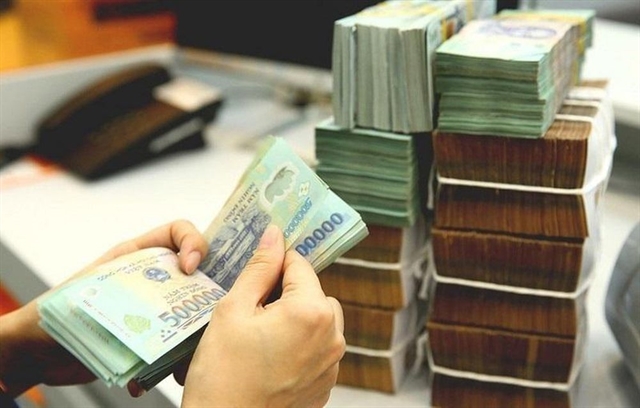 Economy
Economy


|
| Currently, interest rates are unlikely to decrease further as the room for monetary policy has become increasingly narrow. Photo thoibaonganhang.vn |
HÀ NỘI — Rising interbank rates and limited room for monetary policy are putting pressure on the banking system, making further interest rate cuts increasingly unlikely, according to experts. Fiscal policy and long-term capital mobilisation are expected to play a larger role in supporting economic activity.
Currently, interest rates are unlikely to decrease further as the room for monetary policy has become increasingly narrow.
Interest rates on the interbank market have increased sharply across all short-term maturities. Overnight interest rates jumped to 4.36 per cent per year last week, up 0.44 per cent from the previous week. Rates for the 1-week, 2-week and 1-month terms rose by 1.38, 0.78 and 0.32 percentage points to 5.66 per cent, 5.70 per cent and 5.56 per cent, respectively.
In the open market operation (OMO), the State Bank of Vietnam (SBV) last week net injected more than VNĐ29.3 trillion into the banking system, following four consecutive weeks of net withdrawals. The SBV’s net liquidity injection reflects growing liquidity pressure amid accelerated credit growth in the final months of the year.
In this context, experts say it will be difficult for the SBV to cut interest rates further in the near term.
According to Đinh Đức Quang, Director of United Overseas Bank (UOB) Vietnam’s monetary business division, lowering interest rates further is challenging because policy must balance the interests of depositors and borrowers while also managing exchange rate pressures.
“The USD/VNĐ exchange rate has only increased by about 3.4 per cent since the beginning of this year, but in the current context, this is still a factor that makes the SBV cautious,” Quang said.
Sharing the same view, Dr Cấn Văn Lực, Chief Economist of BIDV, commented that the SBV’s monetary policy room was very tight, making further interest rate reductions difficult. Lực noted that the SBV’s refinancing loan rate was about 4.5 per cent per year, only slightly higher than the US overnight lending rate of 4.25 per cent.
“If interest rates are further reduced, it will be very dangerous because of concerns about ‘foreign currency bleeding.’ SBV Governor Nguyễn Thị Hồng has also noted that if the exchange rate situation is tense, the issue of interest rates will be considered. Therefore, reducing interest rates is very difficult, not to mention the story of money supply and inflation will be tense,” Dr Lực said.
According to Dr Lực, credit has so far this year increased by about 11 per cent, up 20 per cent over the same period last year, with real estate credit surging rapidly. It is therefore impossible to continue relying solely on banking capital to promote economic growth while controlling bad debt risks. The focus needs to shift to fiscal policy and long-term capital mobilisation channels to minimise negative impacts on the economy.
Dr Lực proposed promoting fiscal solutions such as tax and fee cuts and accelerating public investment disbursement.
“The room for reform at this time needs to promote the development of both the private and State economy. It is necessary to develop a more sustainable real estate market, suitable for people’s income,” he said.
In the long term, Quang also said it would be necessary to reduce enterprises’ dependence on bank credit for medium- and long-term capital needs. This remained a heavy burden for the banking system and was one of the causes of pressure on interest rates.
“Instead of relying solely on credit, the economy needs more effective mechanisms to raise capital through other channels such as stocks and bonds. Sharing the burden of raising long-term capital to these channels is the fundamental solution, helping businesses and the economy develop sustainably,” Quang said.
However, Lực said these capital-raising channels had not yet played their full role. The proportion of capital raised through the stock market in the past year accounted for only about 3 per cent of total economic capital, far below its potential. Corporate bonds also contributed just 12–13 per cent of total capital, a very modest figure.
Lực recommended that the Government increase the proportion of capital raised from the capital market, including stocks, bonds and investment funds, to about 20–25 per cent, or even 30 per cent of total economic capital. — BIZHUB/VNS




